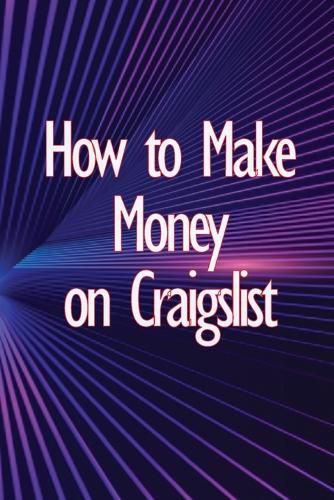Readings Newsletter
Become a Readings Member to make your shopping experience even easier.
Sign in or sign up for free!
You’re not far away from qualifying for FREE standard shipping within Australia
You’ve qualified for FREE standard shipping within Australia
The cart is loading…






This title is printed to order. This book may have been self-published. If so, we cannot guarantee the quality of the content. In the main most books will have gone through the editing process however some may not. We therefore suggest that you be aware of this before ordering this book. If in doubt check either the author or publisher’s details as we are unable to accept any returns unless they are faulty. Please contact us if you have any questions.
Craig Newmark founded Craigslist.com in 1995 as an email distribution list of friends, promoting local events in the San Francisco Bay Area, before it became a web-based service in 1996. It was founded in 1999 as a private, for-profit corporation and has subsequently expanded to include an increasing number of locations.
Craigslist creator Craig Newmark felt alone as a relative newcomer to San Francisco after observing people supporting one another in friendly, social, and trusting community ways on the Internet via the WELL, MindVox, and Usenet. He made the decision to do something similar for local events.
Early in 1995, the first emailed San Francisco event listings appeared. The early technology had certain limitations, but by June 1995, new software had been installed to better handle the developing website, and the mailing list "Craigslist" had resumed operations. The majority of the early postings were provided by Newmark himself, and they were notifications of social events of interest to software and Internet engineers living and working in the San Francisco Bay region.
Rapid expansion was soon achieved by word-of-mouth. The number of subscribers and postings increased quickly. There was no moderation, and Newmark was astonished when people began uploading non-event information to the mailing list. People looking for technical opportunities discovered that the list was a useful method to reach people with the talents they needed.
$9.00 standard shipping within Australia
FREE standard shipping within Australia for orders over $100.00
Express & International shipping calculated at checkout
This title is printed to order. This book may have been self-published. If so, we cannot guarantee the quality of the content. In the main most books will have gone through the editing process however some may not. We therefore suggest that you be aware of this before ordering this book. If in doubt check either the author or publisher’s details as we are unable to accept any returns unless they are faulty. Please contact us if you have any questions.
Craig Newmark founded Craigslist.com in 1995 as an email distribution list of friends, promoting local events in the San Francisco Bay Area, before it became a web-based service in 1996. It was founded in 1999 as a private, for-profit corporation and has subsequently expanded to include an increasing number of locations.
Craigslist creator Craig Newmark felt alone as a relative newcomer to San Francisco after observing people supporting one another in friendly, social, and trusting community ways on the Internet via the WELL, MindVox, and Usenet. He made the decision to do something similar for local events.
Early in 1995, the first emailed San Francisco event listings appeared. The early technology had certain limitations, but by June 1995, new software had been installed to better handle the developing website, and the mailing list "Craigslist" had resumed operations. The majority of the early postings were provided by Newmark himself, and they were notifications of social events of interest to software and Internet engineers living and working in the San Francisco Bay region.
Rapid expansion was soon achieved by word-of-mouth. The number of subscribers and postings increased quickly. There was no moderation, and Newmark was astonished when people began uploading non-event information to the mailing list. People looking for technical opportunities discovered that the list was a useful method to reach people with the talents they needed.